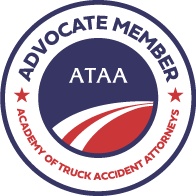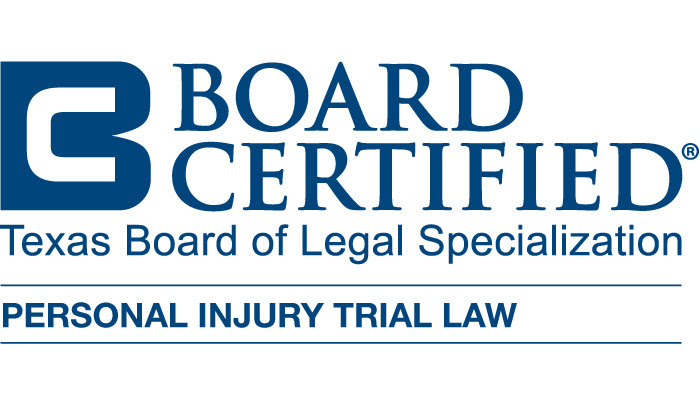The unique environment and hazards of oilfields introduce a myriad of factors that differentiate these claims from more conventional workplace injuries. Recognizing these differences is crucial for ensuring that injured workers receive the appropriate legal representation and compensation for their specific circumstances.


The Unique Hazards of Oilfield Work
Oilfield work is inherently dangerous, with workers exposed to a variety of hazards that are not typically present in traditional workplaces. The heavy machinery, volatile chemicals, and high-pressure systems used in oil extraction and processing create an environment where accidents can have catastrophic consequences. Workers in oilfields often face risks such as explosions, fires, and toxic exposure, which can result in severe injuries or even fatalities. These dangers are compounded by the remote locations of many oilfields, which can delay emergency response times and complicate medical treatment.
In contrast, traditional workplaces, while they can also be hazardous, generally involve more predictable and controlled environments. The types of injuries sustained in conventional workplace settings often include slips and falls, repetitive strain injuries, and machinery-related accidents. While these injuries can be serious, the controlled nature of these environments typically means that safety protocols and emergency response systems are more readily available and effective.
Regulatory Differences and Their Impact on Claims
The regulatory landscape governing oilfield operations is significantly different from that of traditional workplaces. Oilfield operations are subject to stringent regulations from multiple agencies, including the Occupational Safety and Health Administration (OSHA), the Environmental Protection Agency (EPA), and various state-specific bodies. These regulations are designed to ensure the safety of workers and the protection of the environment, but they also introduce a layer of complexity when it comes to filing and pursuing injury claims.
For instance, OSHA regulations specific to the oil and gas industry impose rigorous safety standards that employers must adhere to. Non-compliance with these standards can be a critical factor in establishing employer negligence in the event of an accident. Additionally, the EPA’s regulations regarding the handling and disposal of hazardous materials can influence the legal strategies employed in oilfield accident claims, particularly when environmental contamination is involved.
In contrast, traditional workplace injury claims are generally governed by OSHA regulations that apply to a broader range of industries. While these regulations are comprehensive, they do not encompass the same level of specificity as those for the oil and gas sector. This difference in regulatory oversight can affect the complexity of the claims process and the types of evidence required to establish liability.
My focus is to give a voice to families who have suffered a wrongful death or a serious injury to a family member caused by an 18-Wheeler, commercial truck, or a drunk driver. Contact us today, we can help you.Helping Injury Victims for Over 25 Years
Liability and Third-Party Involvement
One of the most significant distinctions between oilfield accident claims and traditional workplace injury claims lies in the issue of liability. Oilfield operations often involve multiple contractors, subcontractors, and third-party vendors, each with their own roles and responsibilities. Determining liability in the event of an accident can be challenging, as it may require untangling a web of contractual obligations and safety protocols.
For example, if a worker is injured due to equipment failure, it may be necessary to determine whether the responsibility lies with the equipment manufacturer, the maintenance contractor, or the employer who failed to ensure proper usage. This intricate web of potential defendants can complicate the claims process and necessitate a thorough investigation to establish fault.
In traditional workplace injury claims, liability is typically more straightforward, with the employer bearing primary responsibility for maintaining a safe working environment. While third-party involvement can still occur, such as in cases where defective equipment is involved, the overall structure of liability is generally less complex than in oilfield accidents.
Types of Compensation and Damages
The types of compensation and damages sought in oilfield accident claims can also differ significantly from those in traditional workplace injury claims. Due to the severe nature of many oilfield injuries, the compensation sought often includes not only medical expenses and lost wages but also long-term disability, pain and suffering, and punitive damages.
Oilfield accidents frequently result in catastrophic injuries, such as severe burns, amputations, and traumatic brain injuries, which can lead to long-term or permanent disability. As a result, the financial compensation required to cover medical treatments, rehabilitation, and ongoing care can be substantial. Additionally, the psychological impact of surviving a severe accident can lead to claims for emotional distress and reduced quality of life.
In traditional workplace injury claims, compensation typically focuses on medical expenses, lost wages, and rehabilitation costs. While pain and suffering can still be a factor, the less severe nature of many conventional workplace injuries means that the overall compensation amounts are often lower than those in oilfield accident claims.
The Role of Insurance in Oilfield and Traditional Claims
Insurance plays a pivotal role in both oilfield accident claims and traditional workplace injury claims, but the types of coverage and the complexities involved can differ. Oilfield operations often carry insurance policies designed to address the unique risks associated with the industry. These policies may include coverage for environmental damage, equipment failure, and large-scale accidents.
The complexity of oilfield insurance policies can pose challenges for injured workers seeking compensation. Understanding the specifics of the coverage, including exclusions and limitations, is crucial for effectively navigating the claims process. Additionally, disputes between multiple insurance providers can arise, particularly when third-party contractors are involved, further complicating the pursuit of compensation.
Workers’ compensation insurance typically covers medical expenses and a portion of lost wages in traditional claims. While workers’ compensation is designed to provide prompt and predictable benefits, it also means that employees generally forfeit the right to sue their employer for negligence. However, if a third party is found to be responsible for the injury, such as a manufacturer of defective equipment, additional claims outside the workers’ compensation system may be pursued.
Related Videos
Choosing a Personal Injury Attorney
Types of Compensation in a Truck Accident Claim
Legal Strategies and Representation
The legal strategies employed in oilfield accident claims often differ from those in traditional workplace injury claims due to the unique challenges and complexities involved. In oilfield cases, a thorough understanding of industry-specific regulations, safety standards, and contractual relationships is essential for building a strong case.
Gathering evidence in oilfield accident claims can involve extensive investigation, including analyzing maintenance records, safety protocols, and regulatory compliance. Testimony may be required to establish the cause of the accident and the extent of the injuries. Additionally, legal strategies may focus on proving gross negligence or willful misconduct, which can result in higher compensation through punitive damages.
The legal process is often more straightforward in traditional claims, with a focus on establishing that the employer failed to provide a safe working environment. Legal representation in these cases typically involves gathering medical records, witness statements, and safety reports to support the claim. While the pursuit of compensation is still rigorous, the less complex nature of these claims means that the process can be more streamlined.
Understanding the key differences between oilfield accident claims and traditional workplace injury claims is crucial for ensuring that injured workers receive the appropriate legal representation and compensation. The unique hazards, regulatory landscape, liability issues, and compensation types associated with oilfield accidents necessitate a specialized approach to legal advocacy. By recognizing these distinctions, injured workers can better navigate the complexities of their claims and secure the financial support they need to recover and move forward.
Advocating for Oilfield Injury Victims
If you or a loved one has been injured in an oilfield accident or any other workplace incident, it is essential to seek legal representation that understands the intricacies of your specific situation. At Willumsen Law Firm, P.C., we are committed to advocating for the rights of injured workers and ensuring that they receive the compensation they deserve. Contact us today to discuss your case and learn how we can help you navigate the legal process with confidence and experience. Your recovery and well-being are our top priorities, and we are here to support you every step of the way.



